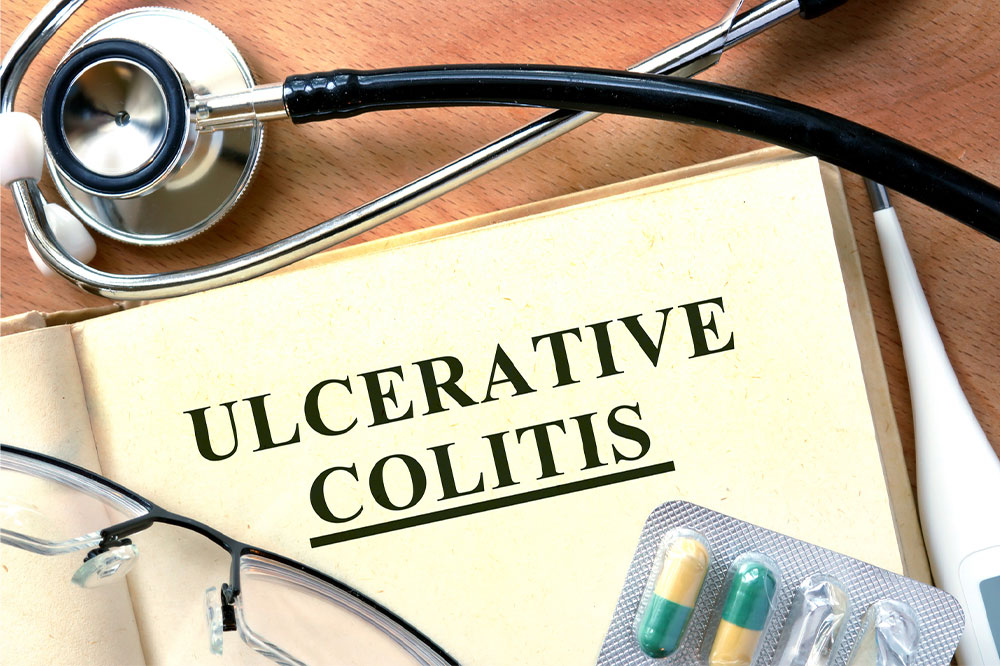
Early signs of ulcerative colitis – Diagnosis and other information
Ulcerative colitis is a chronic gastrointestinal condition causing inflammation and ulcers in the inner lining of the large intestines. According to statistics, at least 20 out of 100,000 people are diagnosed every year with ulcerative colitis in our country. The condition may go unnoticed until it starts showing severe and painful symptoms. Hence, the following article discusses some of its causes, symptoms, treatment, and better management of early signs of ulcerative colitis.
Symptoms
- A person who has ulcerative colitis may exhibit early symptoms like urgent bowel movements or diarrhea, abdominal aching, nausea, tiredness, anemia, and unexplained weight loss. However, it is essential to understand that experiencing one or two of these symptoms may not always indicate ulcerative colitis. Collectively experiencing these symptoms could be a sign of ulcerative colitis.
- Suppose the collective symptoms are left undiagnosed or overlooked. In that case, it may lead to worsening of symptoms, as the patient may exhibit pus or blood in stools, painful bowel movements, skin rashes, fever, red and painful eyes, mouth sores, liver disease, and dehydration. These symptoms may require urgent clinical intervention.
Causes
- Genes
Researchers suggest there are certain genes present that are carried from one generation to another that may cause ulcerative colitis. Knowing if these genes are present in the family can help better manage the onset of the disease beforehand. - Microbiome
This is one of the leading causes of ulcerative colitis. Microbiomes like viruses, bacteria, and fungi aid in digestion. However, it has been found that certain bacteria or pathogens in the gut can lead to ulcerative colitis. - Overactive immune function
Abnormal immune reactions due to underlying health conditions like irritable bowel syndrome can cause inflammation in the digestive tract. This can also lead to ulcerative colitis. - Environment
It is believed that ulcerative colitis may also be linked with our surroundings. Poor sanitation and pollution tend to increase harmful pathogens and bacteria in the surrounding, which can also cause people to exhibit symptoms of ulcerative colitis. Moreover, poor sanitation and nutritional habits also increase the risk of ulcerative colitis.
Diagnosis
Doctors need to undergo specific tests and procedures to diagnose the disease and start effective treatment immediately.
- Stool tests and blood tests
Suppose a patient is exhibiting early signs of ulcerative colitis. In that case, the doctor may ask the patient to get their blood tested to investigate further or rule out any possible infections and complications. The white blood cells in the stool and blood will help the doctor indicate any difficulties. - CT scan and x-ray
Based on early symptoms of ulcerative colitis, if the doctor finds the need for any further investigation, they may prescribe getting a CT scan or an x-ray of the abdomen or pelvis. In this process, the patients are usually required to drink some fluids before going in for the scan. - Colonoscopy
Colonoscopy is a procedure that is usually required for the worsening of ulcerative colitis. It enables a medical professional to carefully analyze a patient’s entire colon using a thin, long device called a colonoscope. It could take anywhere between 30 minutes and 1 hour to complete. - Biopsy
This is yet another form of diagnosis required when early symptoms of ulcerative colitis are overlooked. In this procedure, a surgeon will pluck out a small part of the colon and use it to run tests and investigate further.
Treatments
- Anti-inflammatory options
This form of treatment is used for treating severe conditions of ulcerative colitis. Anti-inflammatory treatments are usually prescribed to lower the hyperactivity of the immune system that typically causes inflammation, leading to ulcerative colitis. However, it is essential to consult a healthcare provider to discuss their side effects. - Aminosalicylates
This is used to treat mild to moderate ulcerative colitis. Some types of aminosalicylates are prescribed for reducing inflammation in the colon and rectum. - Immune system suppressors
These may be prescribed to suppress the overactive immune system. Immune system suppressors are nothing but biologics prescribed to treat ulcerative colitis. It’s a type of inhibitor typically prescribed to cut the action of enzymes in the body triggering inflammation. - Surgery
If none of these treatments work, surgery may be prescribed. Surgery in the form of proctocolectomy and an ileoanal pouch may be performed. The surgery involves removing the colon and rectum and forming an ileoanal pouch (from the small intestine) to create a new rectum.
Ulcerative colitis can hamper one’s lifestyle to the extent that the patient may find it challenging to perform even basic activities. Hence, it is crucial to avoid ignoring early symptoms of ulcerative colitis. Simple home remedies and lifestyle changes like exercise and the right nutrition can keep ulcerative colitis at bay.




